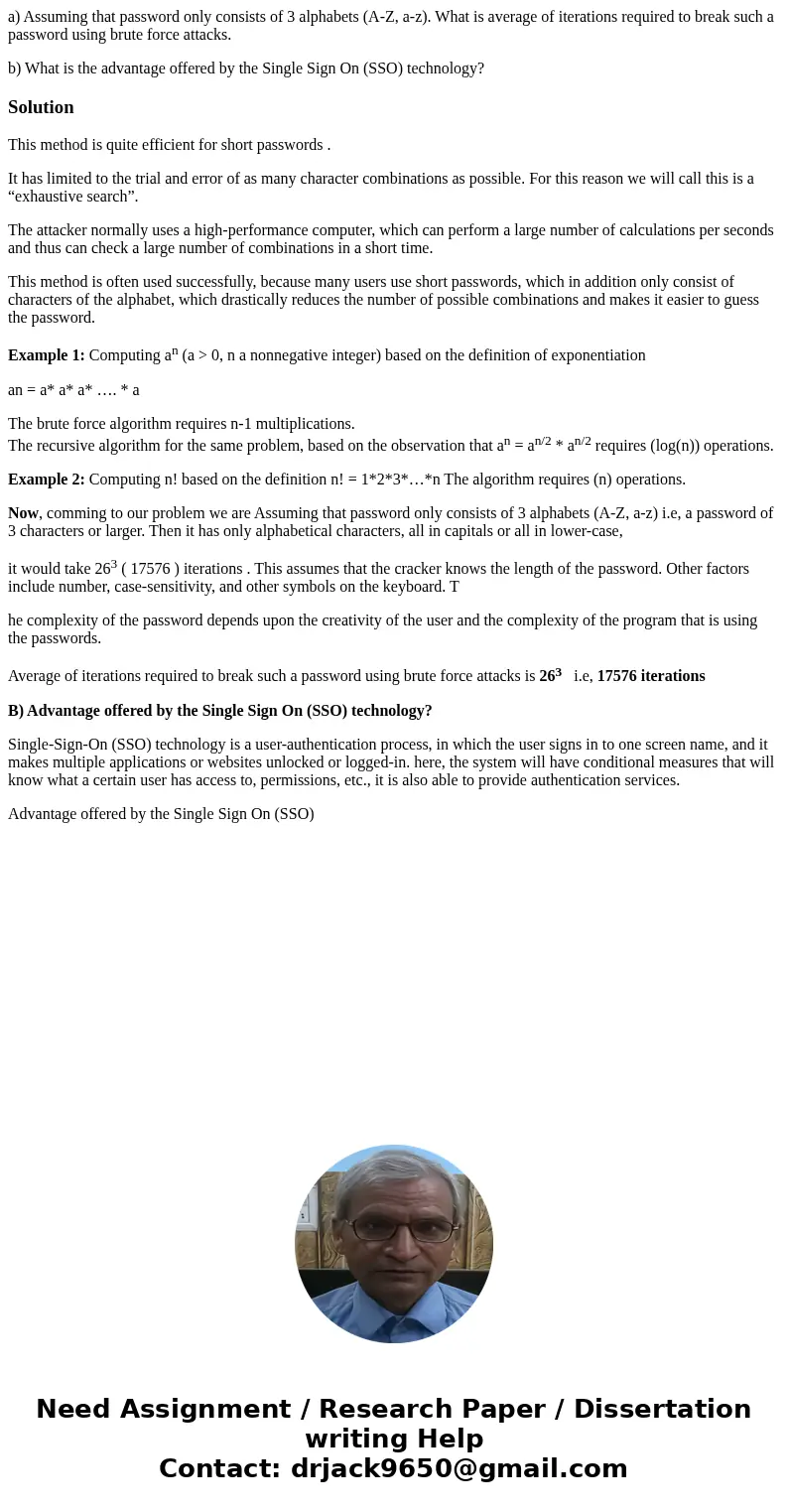a Assuming that password only consists of 3 alphabets AZ az
a) Assuming that password only consists of 3 alphabets (A-Z, a-z). What is average of iterations required to break such a password using brute force attacks.
b) What is the advantage offered by the Single Sign On (SSO) technology?
Solution
This method is quite efficient for short passwords .
It has limited to the trial and error of as many character combinations as possible. For this reason we will call this is a “exhaustive search”.
The attacker normally uses a high-performance computer, which can perform a large number of calculations per seconds and thus can check a large number of combinations in a short time.
This method is often used successfully, because many users use short passwords, which in addition only consist of characters of the alphabet, which drastically reduces the number of possible combinations and makes it easier to guess the password.
Example 1: Computing an (a > 0, n a nonnegative integer) based on the definition of exponentiation
an = a* a* a* …. * a
The brute force algorithm requires n-1 multiplications.
The recursive algorithm for the same problem, based on the observation that an = an/2 * an/2 requires (log(n)) operations.
Example 2: Computing n! based on the definition n! = 1*2*3*…*n The algorithm requires (n) operations.
Now, comming to our problem we are Assuming that password only consists of 3 alphabets (A-Z, a-z) i.e, a password of 3 characters or larger. Then it has only alphabetical characters, all in capitals or all in lower-case,
it would take 263 ( 17576 ) iterations . This assumes that the cracker knows the length of the password. Other factors include number, case-sensitivity, and other symbols on the keyboard. T
he complexity of the password depends upon the creativity of the user and the complexity of the program that is using the passwords.
Average of iterations required to break such a password using brute force attacks is 263 i.e, 17576 iterations
B) Advantage offered by the Single Sign On (SSO) technology?
Single-Sign-On (SSO) technology is a user-authentication process, in which the user signs in to one screen name, and it makes multiple applications or websites unlocked or logged-in. here, the system will have conditional measures that will know what a certain user has access to, permissions, etc., it is also able to provide authentication services.
Advantage offered by the Single Sign On (SSO)

 Homework Sourse
Homework Sourse